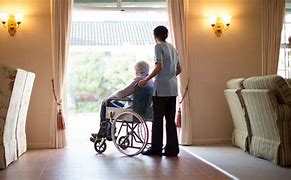
by James C. Sherlock
There is a bill, HB 646, Nursing homes; standards of care and staff requirements, regulations in the General Assembly.
I support its intent.
As written it specifies minimum hours of direct care services for each
resident per 24-hour period.
In actuality, numbers of personnel required to provide the services depend upon the physical health of the patient population of each home. Specific numbers in the current bill also make the law vulnerable to changes in Centers for Medicare & Medicaid Services (CMS) policy. Such specificity is neither necessary nor, I suggest, appropriate.
- The law can be amended to leverage existing federal monitoring of staffing to make it much easier to administer, less vulnerable to federal policy changes and tailored to the needs of the patients of each nursing home;
- The amendment that I recommend will also enable the fiscal impact statement to be far more precise and far lower.
These goals can be achieved with an amended bill.
Background. Nursing homes that accept federal Medicare or Medicaid dollars are already required to comply with federal standards.
It is the penalties for non compliance that are the issue. Medicare/Medicaid inspections are conducted and Centers for Medicare/Medicaid Services (CMS) standards enforced – or not – at the state level.
Virginia’s laws and regulations should set state standards that align with those of CMS. But they must prescribe penalties for non-compliance that are mandatory in this state. Assessment of penalties is currently are left to the judgment of the VDH. That organization simply has not been pulling the trigger on penalties already available to it in federal law.
Some nursing home chains operating in Virginia use understaffing as a business model. I exposed that and named names in my series on nursing homes in this space.
The amendments I suggest below will require VDH to proceed under a new state law, using the federal criteria but assessing specific and mandatory state penalties for failure to properly staff.
Suggested amendments. The bill as currently written requires a fixed number of staff.
CMS makes and regularly updates assessments of the staffing needs of every nursing home in America. It requires actual staffing reporting to be linked to the payroll. CMS then compares patient support requirements to actual staffing and issues a staffing star rating. If the star rating assigned is 2 or 1, the facility is understaffed.
Virginia law can piggyback on that work in a way that is tailored to each facility and creates no more work for the understaffed Office of Licensure and Certification or for the nursing homes themselves.
The bill can prescribe a number of consecutive CMS 2 or 1 star staffing ratings that requires a plan of action. I suggest three. If another sub-par ranking is received, stop the facility from accepting new patients. One more after that, take away the license. Make those penalties mandatory in Virginia.
Costs. HB 646 as written will have large costs according to the current Fiscal Impact Statement.
This bill has a fiscal impact on the Commonwealth because it creates staffing and training standards for all nursing homes, which in turn would increase operating costs. Since Medicaid is the largest payer of nursing home costs, the Medicaid program would be impacted. The lack of this prospective rate increase to cover these costs could jeopardize the financial stability of many nursing homes and result in decreased access to nursing home care for Medicaid beneficiaries.
The bill will not pass with those costs attached.
But the fact is that some Virginia nursing homes provide adequate (3 star) to outstanding (5 star) staffing at current Medicaid rates. Enforcing staffing standards thus arguably need not drive reimbursements higher.
The costs can be more precisely calculated with an assessment of the number of nursing homes that do not currently have at least a three-star staffing rating.
Many chains that understaff their Virginia nursing homes make as much as 15% profit margins here based on current Medicare and Medicaid reimbursements.
They do it because VDH does not assess penalties, not even requiring them to stop accepting new patients until the staffing ratios improve. Again, I named names in my series.
They are not going to abandon their capital investments. They won’t close up shop and walk away because the bill I suggest drives those margins down to 10%. If they don’t like the new margins, they will sell their facilities to someone who can manage those properties to an acceptable profit with proper staffing as others do.
So Medicaid may already be spending enough.
If Medicaid reimbursements need to be raised, then so be it, but such increases won’t be driven by HB 646 amended the way I suggest. Thus an FIS should not hang huge costs around the neck of this bill as amended.
I hope the House amends HB 646 to make it better, give a chance to pass without a FIS that won’t pass, and serve the most helpless among us.
Updated Jan 30 at 3:19 PM

Leave a Reply
You must be logged in to post a comment.